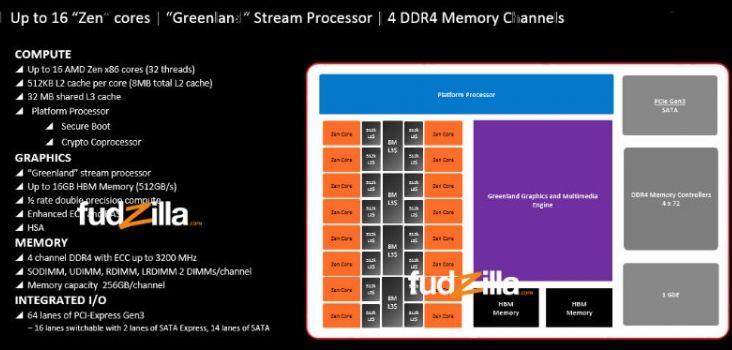It has been nearly 10 years since AMD lost the x86 processor performance crown to Intel’s Core 2 Duo processor and despite all efforts at the opposite, things have stayed that way with little change here and there. While AMD is used to making budget-oriented processors and being second in the performance race does not make the company feel bad, nowadays things do not look rosy in the low-end and mid-range market segments too where AMD has nearly abandoned the FX processor family. Something has to be done quickly and this something is called Zen.
Zen is a new processor architecture by AMD, scheduled to appear sometime in 2016. The new architecture will heal all the problems and issues that the current FX generation has and will bring more new features and functions, which is expected. Zen has not been extensively publicized ever since the architecture was announced but AMD has been leaking some information on it every once in a while to keep the hype. Now we get a new portion.
According to unnamed Japanese AMD representatives, Zen will have a modular architecture, which will be similar to the one featured in the FX generation but with a few changes. First, the architecture will support up to 16 processing cores with four of them making a single module. Each core in a module will be able to process two software threads at once, which is a feature that resembles Intel’s Hyper-Threading and will access 512 KB of L2 cache. In addition a single core will have 2 MB of separate L3 cache. Thus a module with four cores will have 2 MB of L2 cache and 8 MB of L3 cache. Zen will be suitable for servers too and a 16-core server version will have up to 8 MB of L2 cache and 32 MB of L3 cache.
Zen is also looking forward to the future and that’s why a Zen chip will have a quad-channeled DDR4 memory controller for up to DDR4-3200 memory speed (including ECC DDR4 memory). Each channel will support up to 256 GB memory modules as well as up to two memory modules. The chip will also include support for 64 PCI-E 3.0 lanes, two SATA Express ports and up to 14 SATA 3.0 ports.
Processors based on Zen will include the so-called Greenland integrated GPU. It will have a large number of improvements with the first one being the ability to accelerate CPU calculations. Greenland will also support up to 16 GB of HBM memory and up to 512 GB/sec of memory bandwidth and will have support for HAS, GMI and ECC.
Zen looks promising, don’t you think? The first working samples of this chip are expected by the end of the year.
(picture courtesy of Fudzilla.com)
Source: Fudzilla.com
